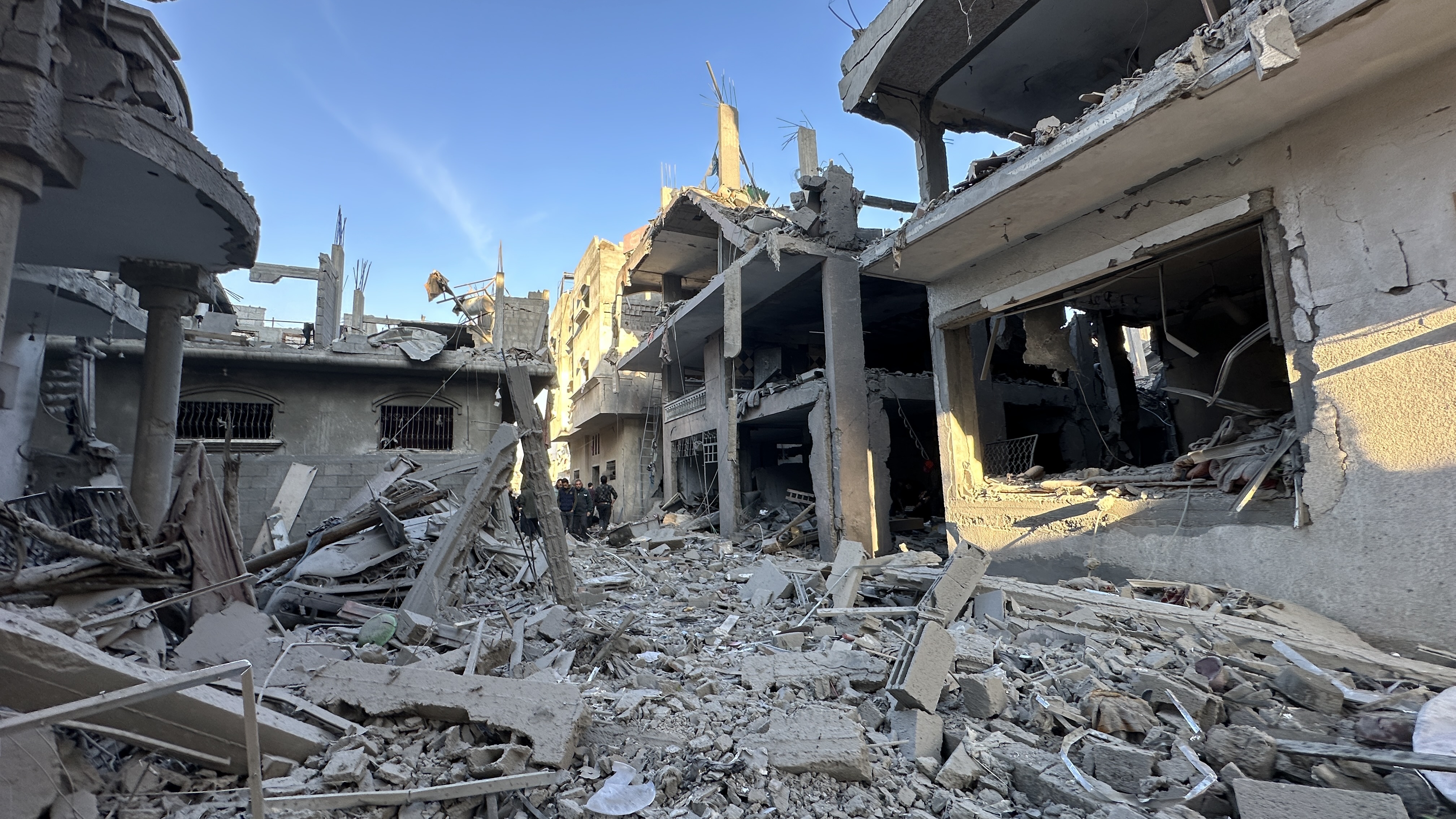
At least 90 people have been killed and more than 100 injured in the latest Israeli attacks on the Jabalia refugee camp in northern Gaza.
The enclave’s Health Ministry said Sunday’s strikes hit a residential block belonging to the al-Barsh and Alwan families in the town of Jabalia, Palestinian news agency Wafa reported.
Women and children were among the dead, with dozens still missing, Wafa said in its report.
The first responders and locals were searching for the wounded and more bodies were believed to be under the rubble.
Many of those injured, including children, were taken to nearby medical centres, which are already overwhelmed with patients.
The son of Dawoud Shehab, the spokesman for the Palestinian Islamic Jihad group, was among the dead, an official from the group told the Reuters news agency.
“We believe the number of dead people under the rubble is huge but there is no way to remove the rubble and recover them because of the intensity of Israeli fire,” he said by phone.
Medics in central Gaza’s Deir el-Balah said at least 12 Palestinians were killed and dozens wounded, while in Rafah in the south, an Israeli air attack on a house left at least four people dead.
About 19,000 Palestinians have been killed in Gaza since October 7. Israel says 1,147 people were killed on its territory that day.
Meanwhile, Israel has also ramped up its artillery shelling in southern Gaza, hitting the cities of Khan Younis and Rafah, where the majority of displaced Palestinians are sheltering.
The stepping up of bombardments in the south has worsened the humanitarian situation, with starving people scrambling for food and water, grabbing them from aid trucks in desperation.
Israel on Sunday said it will reopen the Karem Abu Salem Crossing in the east but it is unclear whether supplies have crossed through there yet.
The United Nations estimates that 1.9 million people – about 80 percent of Gaza’s population – have been displaced by the war.
“I would not be surprised if people start dying of hunger, or a combination of hunger, disease, weak immunity,” said Philippe Lazzarini, the head of the UN agency for Palestinian refugees, UNRWA.







